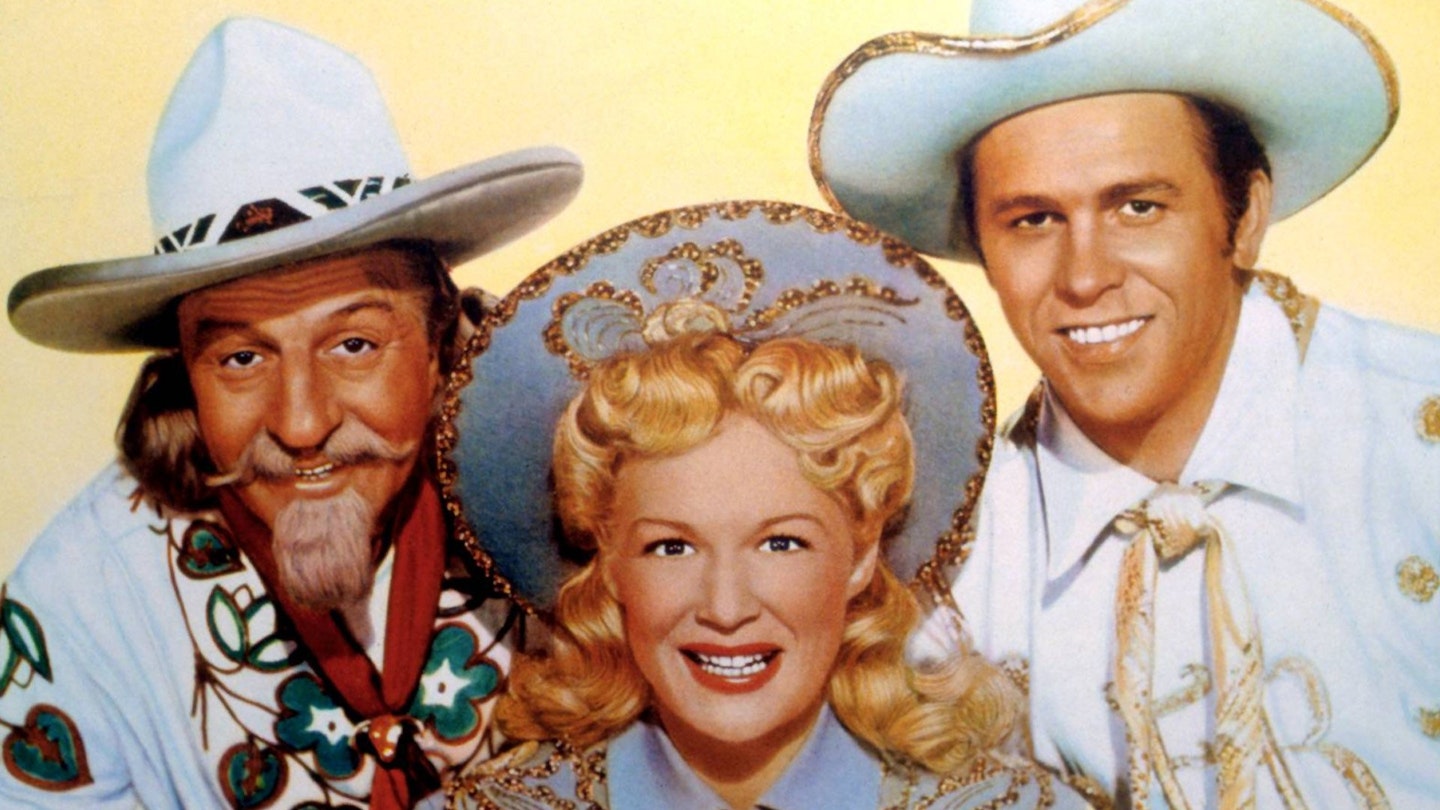Dorothy Fields conceived the 1946 Broadway smash on which this lively MGM musical was based as a vehicle for Ethel Merman. Jerome Kern had been signed up to compose the score, but on his sudden death producers Richard Rodgers and Oscar Hammerstein persuaded Irving Berlin to undertake a rare book show and he responded with such enduring gems as Doin' What Comes Natur'lly', You Can't Get a Man With a Gun', Anything You Can Do' and the anthemic There's No Business Like Show Business'.
Typically overlooking the egregious Merman for the screen version, Arthur Freed secured the rights for Judy Garland, who was recovering from another bout of the mental fragility that had been exacerbated by her addiction to pills. She promptly insisted on the removal of Busby Berkeley as director (even though he had guided her and Mickey Rooney through four vibrant barnyard movies earlier in the decade) and his replacement by Charles Walters. But Garland struggled to find her way into a character that, for once, bore no resemblance to her own personality and the glimpses of her performing `I'm an Indian, Too' in That's Entertainment III (1994) demonstrate just how ill-suited she was for the role.
Walters was the next casualty of this supposedly cursed project and his successor, George Sidney, had to reshoot numerous sequences after Frank Morgan died and Louis Calhern assumed the part of Buffalo Bill. However, Howard Keel (who was making his musical debut) and Betty Hutton had succeeded in establishing a rousing rapport that gave the picture its momentum. Yet, while it earned Keel the role of Bill Hicock opposite Doris Day in Warners' Western riposte, Calamity Jane (1953), Annie only confirmed Hollywood's unjustified suspicions that Hutton was incapable of moderating her performance, even though her bullish comic eagerness here is exactly what the role requires.
